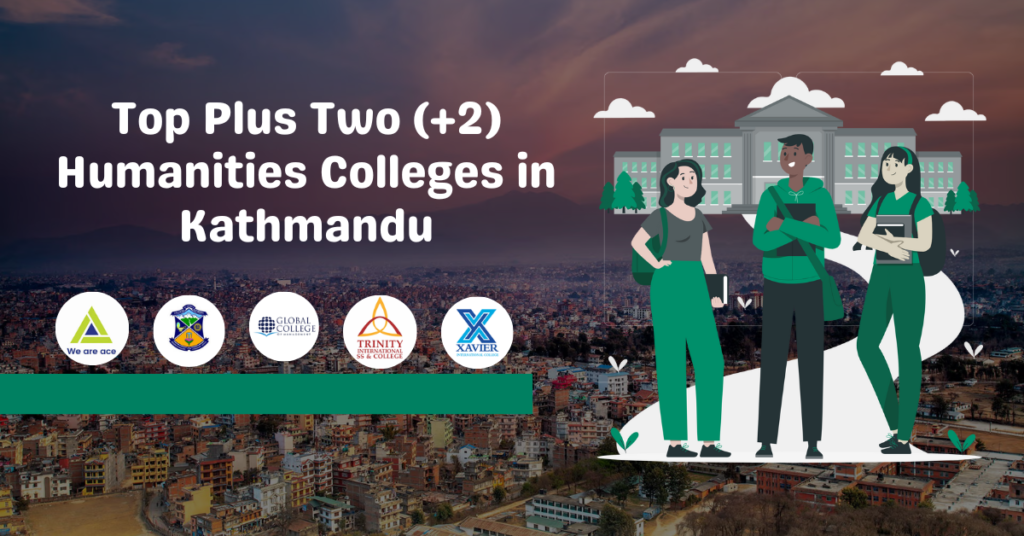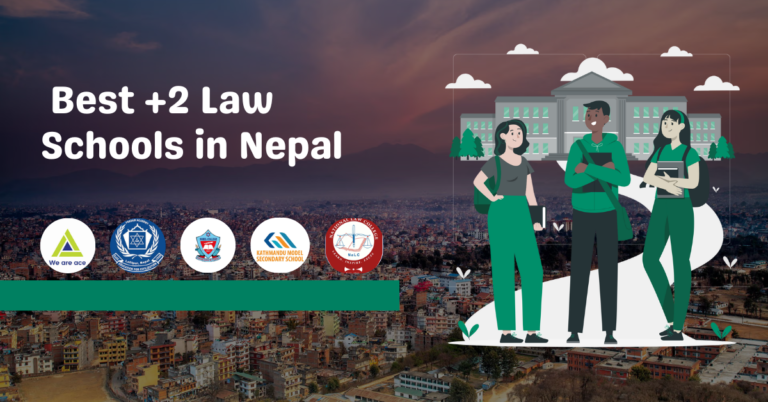Top Plus Two Law Colleges in Kathmandu
Introduction


In the heart of Nepal, Kathmandu has emerged not only as a hub for tourism and culture but also as a growing center for quality education—especially in the field of law. With a rise in demand for legal professionals across the country, there’s been a surge in interest among SEE graduates to pursue legal studies right from the Plus Two level. This interest is both practical and strategic. Choosing the right Plus Two law college in Kathmandu can shape a student’s academic path, legal understanding, and eventually, their career as a competent legal expert.
So why the buzz around +2 Law in Kathmandu? It’s simple—these institutions provide foundational training in legal education, prepping students early for Bachelors of Law (LLB) and even higher studies in national and international universities. Whether you want to be a judge, a public prosecutor, a lawyer, or even a civil rights activist, this path starts right after SEE.
Plus Two Law programs are designed to help students not only grasp the basic concepts of law but also develop critical thinking, legal reasoning, and ethical responsibility—skills that are essential for any successful law professional. In this article, we’ll walk you through the top law colleges in Kathmandu offering +2 programs, helping you find the perfect fit for your goals.
Understanding Plus Two Law in Nepal
What is Plus Two Law?
Plus Two Law, also known as +2 Law or 10+2 Law, is a Higher Secondary program offered under the Humanities stream in Nepal. It is designed for students who have completed their Secondary Education Examination (SEE) and are interested in legal studies from an early academic stage.
Offered by various colleges affiliated with the National Examination Board (NEB), the course blends the core Humanities curriculum with law-focused subjects like:
- Fundamentals of Law
- Constitution of Nepal
- Legal System & Judiciary
- Human Rights and Justice
- Sociology and Political Science
This stream doesn’t just prepare students for university-level legal education—it also trains them to think analytically, reason logically, and communicate persuasively.
Scope and Career Opportunities
Contrary to the myth that law is only for post-graduates, starting early at the +2 level can open various career doors:
- Prepares for LLB and BA LLB programs
- Early exposure to legal systems helps in civil service and judicial exams
- Helps pursue careers in journalism, administration, law enforcement, and even international relations
- Boosts chances of studying law abroad
With the legal profession becoming more dynamic and globally connected, beginning at the Plus Two level offers a serious edge.
Key Factors to Consider When Choosing a Law College
Choosing a law college is more than just picking a school with a good name. Here’s what you need to keep in mind:
Curriculum and Affiliation
Ensure the college is affiliated with the National Examination Board (NEB), which governs higher secondary education in Nepal. Also, check whether their curriculum is up-to-date with national legal developments.
Infrastructure and Facilities
Good colleges offer:
- Law libraries
- Moot courtrooms
- Legal research centers
- Access to legal journals and archives
- Tech-enabled classrooms
These facilities aren’t just “extras”—they’re essentials.
Faculty and Teaching Methods
The quality of faculty can make or break your academic journey. Seek colleges that have:
- Experienced law professors
- Practicing lawyers as guest lecturers
- Workshops and seminars by legal experts
- Strong student-teacher interaction
Student Reviews and Results
Check past academic performance, especially SEE GPA cutoffs, NEB results, and law school placement statistics. Also, talk to alumni if possible—word of mouth is a powerful tool.
Top Plus Two Law Colleges in Kathmandu
Kathmandu boasts a variety of institutions offering Plus Two Law programs. These colleges don’t just provide legal knowledge—they create a well-rounded environment for personal growth, leadership, and analytical excellence.
In the next few sections, we’ll dive deep into the leading +2 Law Colleges in Kathmandu based on faculty strength, infrastructure, NEB results, student satisfaction, and extracurricular exposure.
Whether you’re looking for a college with great campus life or one with a rigorous academic schedule, this list will help you find your ideal match.
National College of Law
Overview
Situated in the heart of the city, National College of Law has made a name for itself as a pioneer in legal education at the secondary level. It’s affiliated with NEB and offers an enriched curriculum that balances theoretical knowledge with practical exposure. With over a decade of experience in legal education, this institution remains a top contender for aspiring legal professionals.
Courses Offered
- Plus Two in Humanities with Law Specialization
- Additional language and communication modules
- Practical training in legal drafting and case study methods
Admission Process
Admissions usually open after SEE results. The basic requirements include:
- A minimum GPA of 2.0 in SEE
- Pass in entrance examination conducted by the college
- Personal interview
The selection process is designed to identify students who are academically capable and passionate about the law.
Facilities and Highlights
- Well-stocked law library
- Regular moot court competitions
- Weekly guest lectures by legal experts and judges
- Internship assistance with law firms and NGOs
The college also emphasizes leadership and social responsibility, encouraging students to participate in community legal service programs.
Kathmandu Model Secondary School (KMSS)
Overview
Kathmandu Model Secondary School (KMSS), one of the leading academic institutions in Nepal, has earned a solid reputation for its commitment to quality education. While it is more popularly known for Science and Management streams, its Humanities program with a focus on Law has gained increasing attention in recent years. Located in Bagbazar, KMSS offers a rich academic atmosphere, highly qualified faculty, and well-structured law-focused curriculum that prepares students to pursue LLB and other professional courses after completion of +2.
Why Choose KMSS?
One of the standout features of KMSS is its emphasis on holistic learning. The law curriculum at KMSS is not just about books and theory; it includes debates, legal writing workshops, and practical sessions such as case analysis and constitution interpretation exercises.
Here’s why KMSS stands out:
- NEB Affiliation ensuring national recognition
- Interactive teaching approach with digital tools
- Guest lectures by legal experts and alumni lawyers
- Study tours to courts and legal institutions
- Regular workshops on Nepalese Constitution and Civic Laws
KMSS also maintains strong discipline and provides academic counseling services that guide students through career pathways in the legal domain.
Admission & Fees
The admission procedure is transparent and merit-based. KMSS announces admissions shortly after SEE results:
- Eligibility: Minimum GPA 2.0 with D+ in all subjects
- Selection: Written test + Interview
- Approximate Fees: NPR 1,50,000 to 2,00,000 per year (including tuition, library, and lab fees)
Scholarships are also available for top scorers and underprivileged students. Financial aid policies are fair and accessible.
Ace Institute of Management – Law Program
Overview
Ace Institute of Management, widely known for its management programs, has stepped into legal education with a modern approach by integrating Humanities and Law. Located in New Baneshwor, Ace is known for its practical pedagogy, discipline, and student support services. Their Plus Two program in Law is ideal for students aiming to grasp core legal subjects early and progress towards law schools in Nepal or abroad.
Special Features
Ace doesn’t believe in just following the curriculum—it enhances it. Here’s how:
- Real-world Exposure: Students are involved in real legal case study analysis and simulation exercises.
- Modern Infrastructure: Digital libraries, online legal databases, and student forums for legal discussion.
- Collaborations: Ties with local law firms for internship placements.
- Student Clubs: Legal debate clubs, mock trial teams, and editorial boards for legal journals.
Ace emphasizes communication skills and legal research, ensuring its students are ready for challenges in the legal world.
How to Apply
Admissions at Ace are competitive but streamlined:
- GPA Requirement: Minimum 2.2 GPA in SEE
- Application Process: Online form submission followed by entrance test and interview
- Fees: Ranges between NPR 2,00,000 to 2,50,000 per annum (scholarships available for high achievers)
With highly qualified instructors and a progressive teaching approach, Ace is perfect for students looking for more than just a traditional law education.
Nobel Academy – Plus Two in Law
College Profile
Nobel Academy, located in Baneshwor, is a household name in the realm of quality education in Kathmandu. It’s long been celebrated for its excellence in Science and Management, but its Humanities stream with a focus on Law is catching up rapidly. The institution combines discipline, innovation, and experienced teaching to create a conducive environment for law enthusiasts.
Curriculum and Affiliation
Affiliated with NEB, Nobel Academy’s Plus Two Law program includes:
- Nepalese Legal System
- Political Theory
- Constitution and Civic Law
- Legal Writing and Analysis
In addition to the core curriculum, Nobel also encourages extracurricular development through law-related quizzes, advocacy campaigns, and community service.
Facilities Offered
- Air-conditioned classrooms
- Dedicated legal studies library section
- Frequent visits to courts and police stations for practical understanding
- Extra coaching for students who plan to go abroad for legal studies
- Moot court activities and role-playing scenarios
The institution prioritizes mental health and offers student counseling to help them manage academic pressure.
Global College of Management – Law Stream
General Info
Though originally renowned for its Business and Management programs, Global College in Mid-Baneshwor has expanded into Humanities and Legal Studies with impressive results. The college aims to nurture not just students, but future legal thinkers, providing them with the foundation needed to pursue LLB, law internships, and judiciary careers.
Student Life and Campus
The campus life at Global College is vibrant and productive. Students have access to:
- Law debates and discussion forums
- Cultural exchange events
- Weekly seminars on Nepal’s legal framework
- Legal journalism projects and legal writing classes
Students actively engage in analyzing real cases and studying current legal issues in Nepal and abroad. Global also has tie-ups with legal institutions for field training and guest lectures.
Academic Structure
Global offers a NEB-affiliated Humanities course with a legal specialization. Subjects include:
- Introduction to Law and Constitution
- Political Science
- Sociology and Human Rights
- Media and Legal Writing
Global’s Law Program is designed to match international standards while remaining grounded in the context of Nepalese legal education.
Prasadi Academy – Emerging Name in Law
Background
Prasadi Academy, a prestigious name in Science and Management education, has recently introduced Humanities with Law specialization. Located in Lalitpur, the institution is well-known for its academic discipline, consistent NEB results, and structured approach to teaching. With its recent inclusion of the Law stream, Prasadi is gradually attracting SEE graduates interested in pursuing law careers.
Law Department Strength
Though new, the Law Department at Prasadi is already making waves:
- Courses aligned with NEB standards and modern legal trends
- Instructors with PhDs in Law and Political Science
- Use of interactive case studies in classrooms
- Active law societies and academic clubs
Prasadi students have already begun participating in national-level legal essay competitions and mock court trials.
Admission Criteria
- Minimum GPA: 2.0 in SEE with good command over English and Social Studies
- Application Fee: Around NPR 1,000
- Tuition: NPR 1,80,000 annually (approx.) with flexible payment plans
If you’re looking for an emerging, competitive academic institution to start your legal journey, Prasadi should be on your radar.
Comparative Table: Top Law Colleges in Kathmandu
Choosing the best Plus Two Law college often comes down to comparing crucial factors like location, fees, facilities, academic performance, and additional support services. Here’s a comprehensive table to help you compare the top law colleges in Kathmandu at a glance:
| College Name | Location | Affiliation | Average Annual Fees (NPR) | Key Features |
|---|---|---|---|---|
| National College of Law | Kathmandu | NEB | 1,80,000 | Law library, moot court, expert faculty |
| KMSS | Bagbazar | NEB | 1,50,000 – 2,00,000 | Legal debates, study tours, academic counseling |
| Ace Institute of Management | New Baneshwor | NEB | 2,00,000 – 2,50,000 | Internship tie-ups, law simulations, modern classrooms |
| Nobel Academy | Baneshwor | NEB | 1,70,000 – 2,10,000 | Moot court, court visits, academic support |
| Global College | Mid-Baneshwor | NEB | 1,90,000 – 2,30,000 | Law forums, cultural events, field training |
| Prasadi Academy | Lalitpur | NEB | 1,80,000 | Law society, legal competitions, experienced faculty |
This table provides a quick comparison to support your decision-making process. It’s essential to visit each college, attend counseling sessions, and evaluate which environment best aligns with your academic goals and learning preferences.
Admission Requirements for +2 Law in Kathmandu
Getting into a good Plus Two law college in Kathmandu isn’t overly complicated, but understanding the standard requirements and application process is key to avoiding unnecessary roadblocks.
Eligibility Criteria
Most NEB-affiliated law colleges in Kathmandu follow these eligibility guidelines:
- SEE passed with minimum GPA of 2.0
- D+ or higher in all individual subjects
- Proficiency in English and Social Studies is often recommended
Some colleges may have higher GPA cut-offs, especially the reputed ones like Ace or KMSS.
Required Documents
Prepare the following documents before applying:
- SEE Mark Sheet and Character Certificate
- Birth Certificate and Citizenship Copy (if applicable)
- 2–3 Passport-sized Photos
- School Leaving Certificate
- Recommendation Letter (optional but helpful)
Application Process
- Visit the college’s website or admission office.
- Fill out the application form either online or offline.
- Sit for the entrance test (includes basic questions from Social Studies, English, and General Knowledge).
- Attend an interview or orientation session if shortlisted.
- Receive your offer letter and complete payment to confirm admission.
Apply early—most top colleges have limited seats and follow a strict merit-based admission process.
Benefits of Studying +2 Law in Kathmandu
Kathmandu isn’t just the capital city—it’s the educational heartbeat of Nepal. Choosing a law program here gives you far more than a classroom education.
Access to Legal Institutions
Being in the capital means:
- Proximity to the Supreme Court of Nepal
- Access to law firms, bar associations, and government legal bodies
- Opportunity to attend legal conferences, workshops, and public hearings
These experiences offer valuable exposure that law students in other cities might not get.
Strong Academic Network
Most law colleges in Kathmandu have collaborations with:
- Local and international NGOs
- Legal aid centers
- Law universities and training centers
This means better internships, project opportunities, and even early mentorships.
Modern Learning Environment
From moot courtrooms to digital learning labs, students in Kathmandu enjoy superior educational infrastructure. Plus, being in a metropolitan area brings:
- Exposure to diverse legal perspectives
- Access to legal publications and libraries
- Networking events and student clubs focused on law and social justice
Tips for Excelling in Law Studies
Let’s be real—law is not a walk in the park. It demands focus, consistency, and a knack for critical thinking. But with the right habits, anyone can thrive in this field.
Develop a Reading Habit
Law students need to read—a lot! Here’s what you should focus on:
- Legal news updates (via online portals or print)
- Landmark court rulings and case studies
- Nepalese Constitution and civil codes
- Law-related books by both national and international authors
Join Debating and Moot Clubs
Public speaking is a lawyer’s superpower. Debate clubs help you think on your feet, argue effectively, and gain confidence.
Practice Writing Legal Documents
Legal writing is an art. Try drafting:
- Legal notices
- Contracts
- Constitutional summaries
- Analytical essays on legal topics
Get them reviewed by your faculty or mentors for feedback.
Use Legal Tools
Learn to use:
- Legal search engines (like Nepal Law Commission’s site)
- Case law databases
- Legal dictionaries and citation tools
These will save you time and make your research far more professional.
Conclusion
Choosing the right Plus Two Law college in Kathmandu is a significant step towards a fulfilling career in the legal field. With Kathmandu being the hub of legal education, students have a rich variety of institutions that cater to every academic and professional need.
From established names like KMSS and National College of Law to progressive institutions like Ace and Nobel Academy, the capital city is brimming with opportunities for future lawyers. The blend of academic excellence, access to legal bodies, modern infrastructure, and career exposure makes Kathmandu the best place to start your legal journey.
No matter which college you choose, make sure it aligns with your passion, goals, and learning style. A strong legal education begins with a strong foundation—and that starts at Plus Two.
FAQs
1. Is Plus Two Law a good choice after SEE in Nepal?
Yes, it offers an early start in legal education and helps you build a strong base for law careers and further legal studies like LLB.
2. What subjects are included in the +2 Law curriculum?
Subjects typically include Constitution, Legal Systems, Political Science, Human Rights, and Legal Writing, alongside core Humanities subjects.
3. Can I pursue LLB abroad after completing +2 Law in Nepal?
Absolutely. Most foreign universities accept NEB-affiliated certificates, especially if accompanied by good academic performance and entrance scores.
4. Are there scholarships available in Plus Two Law colleges in Kathmandu?
Yes, many colleges offer merit-based and need-based scholarships. Criteria vary by institution.
5. Which is the most affordable +2 Law college in Kathmandu?
KMSS and National College of Law are generally more affordable compared to private institutions like Ace Institute of Management.







